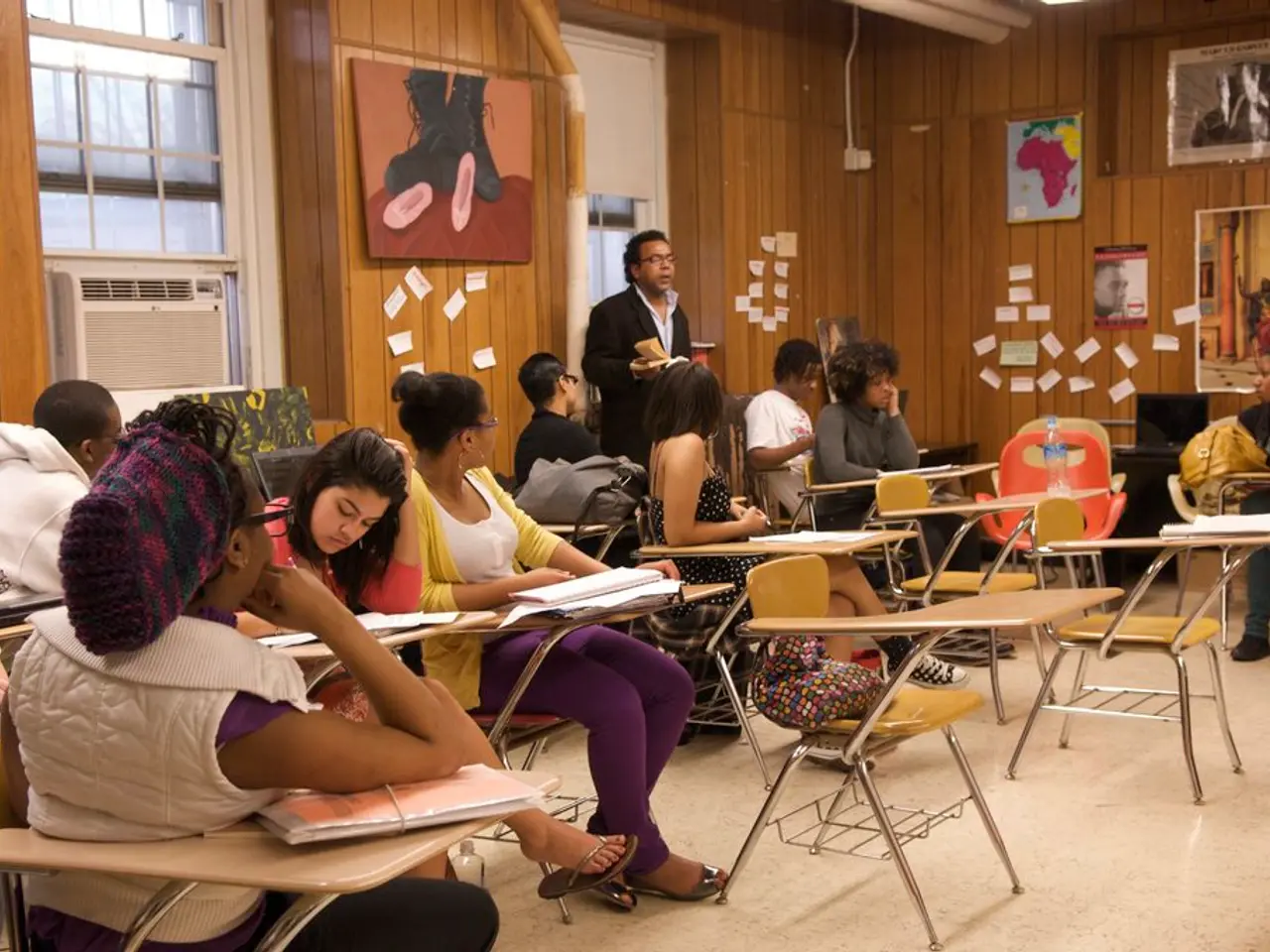Strategies and Techniques for Successful Learning and Academic Mastery
In the pursuit of academic success, finding the right study method can significantly impact your learning experience and long-term retention. Different individuals have unique learning styles, and tailoring study methods to each style maximises understanding and retention.
Understanding Learning Styles
Learning styles are often classified into seven categories: Visual, Auditory, Reading/Writing, Kinesthetic, Logical, Social, and Solitary. Each category responds best to specific study techniques.
Visual (Spatial) Learners
Visual learners benefit from seeing information visually. Tools like mind maps, diagrams, and color-coded notes are highly effective for this learning style. Visualising concepts, using infographics, and creating mental images can help reinforce learning [1][3][4].
Auditory Learners
Auditory learners remember best through listening and speaking. Group discussions, teach-back methods, and mnemonic devices involving sound are beneficial for this learning style [3][4].
Reading/Writing Learners
Reading/Writing learners excel with text-based input and output. They should prioritise reading textbooks, rewriting notes in their own words, and using journals and written exercises [1][2][3].
Kinesthetic (Tactile) Learners
Kinesthetic learners need physical activity connected to their learning. Incorporating hands-on experiments, pacing while memorising, and short study bursts with movement can help maintain focus [1][2][3][4].
Logical (Mathematical) Learners
Logical learners should set clear goals, analyse patterns, and focus on deep understanding rather than rote memorisation [5].
Social (Interpersonal) Learners
Social learners thrive with interaction and group work. They gain from collective brainstorming and role-playing [5].
Solitary (Intrapersonal) Learners
Solitary learners need quiet, individual time. They benefit from using journals for reflection and keeping agendas to organise tasks [5].
Additional Study Techniques
Memory Techniques
Memory techniques like the Method of Loci and Memory Palace, Mnemonics, Flashcards, and the Feynman Technique can aid in remembering difficult content [2][3][4][5].
Spaced Repetition
Spaced repetition is a technique for learning more efficiently with optimal timing. The Leitner System is a practical application of this technique, focusing more on difficult material without wasting time on what is already known [2].
Group Learning and Self-Testing
Group learning and discussions can help the material stick, as you're actively processing it and considering it from different perspectives. Self-testing and using past exams help prepare effectively for assessments, as they help assess progress and identify topics that still need improvement [2].
Structured Repetition and Reduced Stress
Long-term knowledge retention is achieved through structured repetition. A reduced stress level is achieved by having a clear learning strategy and structured approach [2].
Combining Techniques
A combination of different study methods often brings the greatest success in learning [2].
Finding Your Optimal Study Mode
Preparing your workspace, minimising distractions, creating a study plan, and scheduling breaks can help find the optimal study mode. Writing summaries is a useful study method, as it forces understanding and filters out unnecessary details, making the material more digestible [2].
The Pomodoro Technique, the Cornell Method, and the SQ3R method are additional techniques that can help you study efficiently [2].
In conclusion, identifying your preferred learning style(s) and applying matched study strategies is a recommended approach to optimise learning efficiency and retention [1][2][3][4][5]. Effective learning techniques are essential for university students to master large amounts of material, making learning a personalised and enjoyable journey.
[1] https://www.britannica.com/topic/learning-styles [2] https://www.verywellmind.com/learning-styles-4158475 [3] https://www.ncbi.nlm.nih.gov/pmc/articles/PMC3100750/ [4] https://www.ncbi.nlm.nih.gov/pmc/articles/PMC3100751/ [5] https://www.ncbi.nlm.nih.gov/pmc/articles/PMC6457643/
- To enhance personal growth and self-development through education and learning, it's crucial to understand and apply study methods that cater to one's unique learning style.
- Visual learners might benefit from using mind maps, diagrams, and color-coded notes, while auditory learners may find group discussions, mnemonic devices, and teach-back methods more effective.




